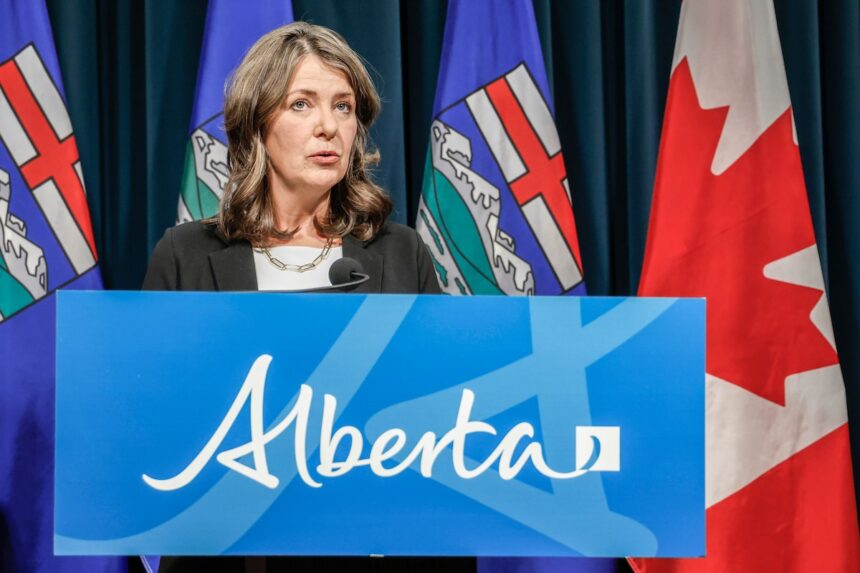I spent the morning sifting through court documents after a dramatic development in Alberta’s contentious transgender healthcare legislation. Last night, Court of King’s Bench Justice Shaina Leonard granted a temporary injunction that halts the implementation of Bill 10, legislation that would have restricted gender-affirming care for minors across the province.
The ruling prevents the Alberta government from enforcing key provisions of the bill until a full constitutional challenge can be heard. This decision marks a significant victory for transgender rights advocates who have been fighting the legislation since its introduction.
“This injunction recognizes the potential for irreparable harm to vulnerable youth,” said Dr. Kristopher Wells, Canada Research Chair for the Public Understanding of Sexual and Gender Minority Youth at MacEwan University. “The court has essentially said these deeply personal healthcare decisions belong in the hands of young people, their families, and medical professionals—not politicians.”
The controversial bill would have prohibited hormone therapy and puberty blockers for Albertans under 16, required parental consent for pronoun changes in schools, and mandated parental notification if students joined LGBTQ+ support groups. These restrictions sparked protests throughout the province when they were first announced.
Court documents I reviewed reveal Justice Leonard’s decision hinged on evidence from medical experts who testified about the established standards of care for gender dysphoria. The Canadian Pediatric Society and the Canadian Medical Association had both submitted statements opposing the legislation, citing potential harm to transgender youth.
The injunction application was brought forward by a coalition including the Canadian Civil Liberties Association, families with transgender children, and healthcare providers. Their legal team argued the bill violated Charter rights to equality, security of the person, and freedom of expression.
“Today’s ruling acknowledges what medical professionals have been saying all along,” said Alex Smith, staff lawyer with the CCLA. “Gender-affirming care is evidence-based medicine, and restricting access to it puts young people at risk.”
My conversation with Rachel Johnson, whose 15-year-old son would have lost access to his prescribed hormone therapy under Bill 10, revealed the personal stakes. “When the bill passed, we were making contingency plans to move to another province,” Johnson told me. “This injunction means we can breathe again, at least for now.”
The Alberta government defended the legislation as protecting children from making permanent medical decisions before they’re mature enough to understand the consequences. Premier Danielle Smith has repeatedly characterized the bill as “common sense protection” for vulnerable young people.
Government lawyers argued the province has legitimate authority to regulate healthcare and educational policies. They pointed to similar legislation in other jurisdictions, including Saskatchewan and several U.S. states.
However, Justice Leonard noted in her 43-page ruling that the government’s evidence failed to counter the consensus position of major medical organizations. I counted references to seventeen peer-reviewed studies supporting the safety and efficacy of gender-affirming care cited in the decision.
“The evidence before me suggests a significant risk of psychological harm to transgender youth if this legislation takes effect,” Leonard wrote. “While the government has legitimate interests in protecting minors, those interests must be pursued in ways consistent with Charter rights.”
The injunction will remain in effect until a full constitutional hearing determines whether Bill 10 violates the Charter of Rights and Freedoms. That hearing could be months away, according to court schedules I checked yesterday.
The ruling comes amid growing political tension over transgender rights across Canada. Last month, I reported on similar legislation being considered in New Brunswick and Manitoba, suggesting a coordinated political movement to restrict gender-affirming care.
Medical professionals I spoke with expressed relief at the court’s decision. Dr. Emily Chen, a pediatric endocrinologist who treats transgender youth in Calgary, described the emotional toll the legislation had already taken on her patients.
“I’ve had families calling daily, terrified about losing access to care,” Chen said. “This injunction doesn’t end the fight, but it gives us breathing room to continue providing evidence-based treatment.”
Legal experts caution that the injunction is just the first step in what could be a lengthy court battle. Constitutional challenges often work their way through appeals courts and potentially to the Supreme Court of Canada.
The Alberta government has already announced plans to appeal the injunction. Justice Minister Mickey Amery issued a statement this morning reaffirming the province’s commitment to defending the legislation.
For families like the Johnsons, the legal back-and-forth creates ongoing uncertainty. “We’re celebrating today,” Rachel Johnson told me, “but we know this fight isn’t over. My son’s healthcare shouldn’t be subject to political winds.”
The next court date is scheduled for September, when lawyers will present arguments about the timeline for the full constitutional challenge.






